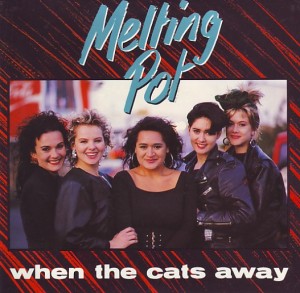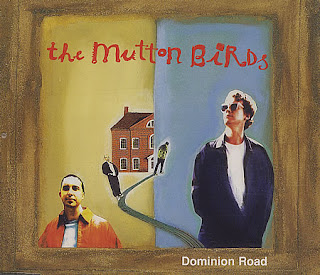A newly elected New Zealand Prime Minister has a radical agenda of racial unity, but can he achieve his vision? An interactive short story multimedia extravaganza.
One of four finalists in the New Zealand flag design referendum 2015
Melting Pot
Part 1
Gisborne, New Zealand, 9:45 pm Saturday
6 November 2032.
“What we need is great big melting pot
Big enough to
take the world and all it’s got
And keep it
stirring for a hundred years or more
And turn out
coffee colored people by the score …”
The strains of the
party’s theme song faded out and a man stepped to the lecturn in the centre
of the stage. Behind the MC on a huge electronic screen the words Aotearoa New
Zealand Unity Party in large letters floated above an animated representation
of the new New Zealand flag, a bold silver fern against the black and blue
background alongside the four stars of the southern cross constellation that
had guided so many mariners to the nation’s shores.
The man smiled and
opened his arms. “Ladies and gentlemen, I am pleased to announce that Sam Matai
has just received a call from the Prime Minister conceding the election and is in
a car on his way here right now.” The crowd clapped and whistled. The music
started up again and the buzz of conversation returned to the room.
The studio host looked
up from her screen and stared into the camera. “That was the party stalwarts in
Gisborne receiving the news we told you about just a few minutes ago. The Prime
Minister Nathaniel Parker has conceded the election and the Aotearoa New
Zealand Unity Party will lead the next government. We now cross live to our
reporter at a private hospital in Auckland where the defeated Prime Minister is
awaiting the birth of his first child. Are you there John?”
“Yes Carol. The Prime
Minister is due to join us in a moment to make his concession speech. We expect
it to be short and sweet given the circumstances. No news on the imminent birth
at this stage. We presume that his wife is still in labour. Not the political
party by the way. No pun intended.” The reporter smiled then looked away from
the camera. “And here he comes.”
The camera swung around
to show the double doors of a meeting room, painted in a sterile cream with
aqua trim. The Prime Minister strode in, followed by and aide and two security
officers. He walked directly to a podium bristling with microphones set up at
the other end of the room. He ran a hand through his blond hair and looked into
the cameras.
“Friends, supporters,
people of New Zealand. To all the party members and supporters and who have put
so much of themselves into this campaign, to all of you and my campaign team, I
say thank you for your tireless efforts during the last month. Please accept my
apologies that I am not with you in person. As you will have heard my wife is
currently in labour and I am here at the hospital with her. Election or not I
dare not be anywhere else.” Laughter rippled through the press contingent.
He paused and gave one
of his trade-mark grins. He looked down briefly at his notes, then resumed. “Unfortunately
the election result did not go our way tonight. I have just gotten off the
phone with Mr Matai and wished him well in governing New Zealand for the next
three years. I also assured him that while we may have lost the election today,
we will not stop pressing our views and ensuring that the government’s decisions
going forward are ones that are genuinely good for New Zealand. We resolutely
oppose many of the policies the new government proposes and we will work with
the other parties in this parliament to ensure that the voice of middle New
Zealand is heard. Thank you.” He looked down and tidied his notes.
“Will you stay on as
leader of the opposition?” a reporter called from the back of the room.
“Yes, I absolutely
intend to stay on. My aim will be keep the new government on its toes and win
the next election.” Several more hands rose but he stepped away from the
podium. “Excuse me, I need to get back to my other job.” He left the room and
walked down the corridor. the aide fell into step beside him. “Any news?” he
asked without turning his head.
“No change from when you
left.”
He nodded and headed for
the lifts, loosening his tie and removing his suit jacket as he walked.
“Ok, we’re back in the
studio now with our panel. Professor Byron, Auckland University, what made the
difference this time? Was it the death of former Prime Minister Keith Bannister
that saw their party popularity fall off late in the race?”
“Well, Carol I think
that had something to do with it. Losing your leader three months out was
clearly a difficult blow for them. Parker was a compromise candidate for deputy
leader and doesn’t have quite the same rapport with voters or the political
experience and that showed at times in the campaign. I think though, that the
signs were there before that. Unity on the other hand, after 9 years in power,
and the last three years in opposition, I think are ready to continue where
they left off.”
“Thank you Professor. I
would like to explore another of Parker’s comments. He made it clear that he
will be fighting tooth and nail against some of the Unity’s polices. One of
those would have to be immigration. Parker is opposed to restricting immigration
numbers, but wants to increase the English requirements, a move that is widely
considered to be an attempt to exclude Asians and other non-white immigrants. Greetings
Russell Hurst, political commentator, your thoughts?”
“Well Carol, that policy
has been a bottom line for them all through the last three years. Sam Matai on
the other hand has clearly made a case for reducing immigration again, arguing,
with some justification I think, that past polices of encouraging high immigrant
numbers were a direct cause of the Auckland housing bubble before it burst a
decade or so ago. At the same time he has stated that his government will look
to increase the quota of humanitarian refugees we accept through the UN. That
will most definitely be a contentious issue in the new parliament.”
Carol nodded. “And what
of Parker’s confidence about leading his party into the next election?”
“Oh, quite justified I
think. He still stands a good chance of being the youngest elected Prime
Minister in New Zealand’s history if he plays his cards right.”
“Thank you Russell. Now,
the Honourable Hirini Smith, Kia ora Hirini.
“Kia ora Carol.”
“You are a former Minister
of Maori affairs, what are your thoughts on Sam Matai and how this new
government might fare?”
“Well, he starts with a
good deal of good will and broad support for his polices. Add to that a bit of
soul searching by Unity while they were in opposition and one would hope they
will approach the next three years with a suitable degree of humility. At the
same time he seems to as ambitious as ever in terms of the changes he wants to
see. Matai says they intend to implement what people want, but there is a danger
they may get a little too far ahead of what people are ready for…”
“Surely that’s better than
doing nothing unless it’s politically safe?”
“Agreed Carol, that’s
true, but at it still entails political risk. The issue I’m thinking of is of
course the review and potential ending of the Maori electorates in parliament. Matai
contends that there are now more Maori MPs from general and list seats than the
Maori seats, and with our Mixed Member Proportional voting system we don’t need
special seats any longer. With the percentage of Maori in the population
increasing there is potential for the number of Maori seats to increase under
the current model but Matai would prefer, in line with the overall philosophy
of kotahitanga, unity, to abolish
them all sooner rather than later.”
The host interjected: “That’s
right. He has contended on several occasions that they aren’t needed now, Professor
Byron, your view?”
“I agree with Hirini it’s
risky. The Maori seats have been seen for a long time as a safeguard, an important
a source of representation and voice for Maori, a source of pride even. It
would be difficult for many to see them go. On the other hand, Matai achieved a
remarkable transformation as Associate Minister and then Minister of Health in
the previous Aotearoa Unity – Green coalition government. His flagship preventative
health campaigns, environmental contamination measures, and the Reproductive Safety
Programme all proved popular and effective. And importantly he has always said
he doesn’t make anyone else do things he wouldn’t do himself. He will have to
give up his own seat of Ikaroa-Rāwhiti and go on the party list or contest a
general seat. Honestly, I wouldn’t bet against him at this stage.”
Nathaniel Parker stood
beside the bed, and held Fiona’s hand tightly in his. Her pale face was flushed
with effort and her long blonde hair dishevelled and damp with sweat. “Hang in
there honey. It’s coming.”
“Ugggh!” she screamed.
Her head dropped back on
the pillow and she panted for breath. From behind the sheet a wail erupted. Parker
saw her smile and looked over at the doctor. The doctor lifted the baby up and
placed her on Fiona’s chest. “Congratulations, you have a lovely baby boy.”
Fiona looked up at Parker
and smiled again as tears began to run down her cheeks. He kissed her on the
forehead and gazed at the baby in her arms. His brow furrowed and his mind spun
madly. I couldn’t be. He stared at Fiona and then back at the bay. She couldn’t
have, surely. No!
Then something clicked
in his mind. He’d heard the rumours but dismissed them. The whispers of
something odd afoot in the Reproductive Safety Programme, complaints of
mistakes hushed up behind the scenes, but the business of running government
had meant he had too much on his plate to ever follow it up. The Health Minister
hadn’t said anything either.
But now he knew it was
true. Damn Sam Matai!
He stared down at his
wife and new born son. His face contorted and his throat tightened until he
could barely breathe.
The baby had black hair
and brown skin.
********
Some great New Zealand music: Dominion Road by the Mutton Birds (youtube)
Read Melting Pot Part 2 here.



No comments:
Post a Comment